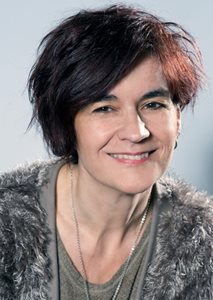Who are you?
I am Petra Reijnders-Thijssen, currently the manager of quality and safety at Maastro, an independent radiotherapy organisation in the southern part of The Netherlands.
I have been working in radiotherapy for over 38 years. I trained as a radiation therapist (RTT) and then went through all kinds of managerial functions and training. In about 2000, I implemented a risk-management /patient-safety system in my organisation and extended it to a national collaboration called a prevention, recovery and information system for monitoring and analysis in radiotherapy (PRISMA-RT). I have worn many different hats within Maastro.
Who is your role model?
I have two big role models: my dear mother and Mary Coffey.
My mother had to deal with mistakes in her cancer treatment 30 years ago. She activated my risk awareness in the case of health.
Professor Coffey, my predecessor, is also an important role model because she is an RTT and handles the dynamics of dealing with different professionals. Her knowledge, experience and network are, in my opinion, of great and indispensable value to the radiotherapy community.
What is your role within the committee?
As chair, I hope to be able to function as a connector: on the one hand, by recognising relevant quality- and safety-related topics, and on the other, by involving colleagues in these subjects.
What would you like to improve under the umbrella of ROSQC?
To promote awareness of risks that are related to volatility, uncertainty, complexity and ambiguity. These are qualities that make a situation or condition difficult to analyse, respond to, or plan for. These risks may not yet be immediately recognised but they may have major impacts due to the changing environment/world and technology shifts in our radiotherapy processes. Awareness of these risks requires continuous attention, for instance in cyber safety.
Is there specific radiation protection legislation that you have to comply with in your country?
In the Netherlands, we have different kinds of indicators and laws that we have to relate to. For instance, the National Radiation Oncology Society (NVRO) defines quality indicators for Dutch radiotherapy departments and organisations.
Which topics are important to you and that you want to have on the ESTRO agenda?
Two dominant topics:
- cyber-risk and awareness; and
- technology developments and their relationship to quality and safety.
Important questions to address are: when and where in artificial intelligence processes are quality assurance and quality checks necessary? What are the risky moments? In addition, what can we learn from other industries? Our patients are unique, not our processes.

Petra Reijnders-Thijssen MA
Course director of risk-management course for ESTRO
Faculty member of risk-management course on the radiation oncology safety education and information system (ROSEIS), endorsed by ESTRO
Chair of ESTRO radiation oncology safety and quality committee
Manager, quality and safety, Maastro
Maastricht, The Netherlands
petra.reijnders@maastro.nl